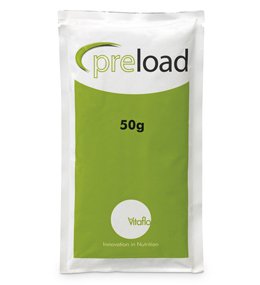Enhanced recovery after surgery (ERAS®)
Enhanced Recovery After Surgery (ERAS®) is a multidisciplinary approach, aimed at improving the experience and well-being of patients undergoing surgery. Originally developed in colorectal surgery, it was found that patients following an ERAS programme had fewer complications, a more rapid return of gut function and a shorter hospital stay1. Following success in colorectal surgery, ERAS programmes have been developed in other specialist areas such as urology, pancreatic, orthopaedic surgery and more.
ERAS can benefit the patient as it encourages them to be more involved in their own treatment, promotes shorter recovery times and earlier discharge from hospital 1, 2, 3. It also benefits the hospital by aiding decreased hospital stays 1, 2, 3, 4, hospital acquired infections5 and waiting times2.
Prior to surgery, patients require optimal nutrition to ensure they are in the best possible condition. The National Institute for Clinical Excellence (NICE) state that a malnourished individual will have 3 times the number of complications and 4 times the risk of death from the same surgery as a well-nourished patient6.
Pre-operative carbohydrate loading
Fasting, typically nil-by-mouth from midnight before surgery was introduced to reduce the risk of pulmonary aspiration. However, the European Society for Parenteral and Enteral Nutrition (ESPEN) and NICE state that allowing patients to eat up to 6 hours prior to surgery and being able to drink appropriate fluids up to 2 hours before surgery is safe 7, 6, enabling the patient to enter surgery in a fed state.
Carbohydrate loading before surgery has the following potential benefits:
- Helps prevent dehydration8, 9
- Helps prevent catabolism, insulin resistance, muscle loss, weakness and fatigue and may also reduce the patient’s anxiety and improve comfort 2, 4, 10, 11, 12
- Promotes gut function2, 1
Preload™ is a neutral-tasting carbohydrate loading drink mix specifically designed for use before elective surgery. Preload is presented in 50g pre-measured sachets which when added to water produces a solution with low osmolality.
Providing optimal nutrition in the days following the operation is important to aid recovery. Pro-Cal shot® is a high calorie, low volume supplement which can be given post-operatively. A clinical trial regarding the use of Pro-Cal shot in postoperative patients showed a significant improvement in total daily oral calorie intake and a decreased postoperative hospital stay 13.
The following websites provide further information:
- www.nice.org.uk/CG32
- www.improvement.nhs.uk/enhancedrecovery/
- www.institute.nhs.uk/…/enhanced_recovery_programme.html
- www.erasuk.org/
- www.18weeks.scot.nhs.uk/service-redesign-and-transformation/enhanced-recovery/
- Kehlet H (2005). Fast track colonic surgery: status and perspectives. Recent Results cancer Res 165: 8-13.
- Noblett SE, Watson DS et al. Pre-operative oral carbohydrate loading in colorectal surgery: a randomized controlled trial. Colorectal Disease (2006); 8: 563-9.
- Nygren J, Thorell A, Ljungqvist O. Pre-operative oral carbohydrate nutrition: an update. Current opinion Clin metabolic care 2001: 4: 255-9.
- Ljungqvist O, Nygren J, Thorell A. Modulation of post-operative insulin resistance by pre-operative carbohydrate loading. Proc Nutr Soc (2002); 61 (3): 329-36.
- Delgado-Rodriguez M, Bueno-Cavanillas A, Lopez-Gigosos R et al. Hospital stay length as an effect monifier of other risk factors for nosocomial infections. Eur J Epidemiol 1990; 6: 34-9.
- National Institute for Health and Clinical Excellence (NICE) (2006). Clinical Guideline 32: Nutrition Support in Adults.
- Weimann A, Braga M, Harsanyi L, Laviano A, Ljungqvist O, Soeters P; DGEM (German Society for Nutritional Medicine), Jauch KW, Kemen M, Hiesmayr JM, Horbach T, Kuse ER, Vestweber KH; ESPEN (European Society for Parenteral and Enteral Nutrition). ESPEN Guidelines on Enteral Nutrition: Surgery including organ transplantation. Clinical Nutrition (2006); 25:224-244.
- Lobo DN, Bostock KA, Neal KR, Perkins AC, Rowlands BJ, Allison SP. Effect of salt and water balance on recovery of gastrointestinal function after elective colonic resection: a randomised controlled trial. Lancet (2002); 359 (9320): 1812-18.
- GIFTASUP (2011). British consensus guidelines on intravenous fluid therapy for adult surgical patients. Available online at : http://www.bapen.org.uk/pdfs/bapen_pubs/giftasup.pdf
- Yuill KA, Richardson RA, Davidson HI, Garden OJ, Parks RW. The administration of an oral carbohydrate containing fluid prior to major elective upper gastrointestinal surgery preserves skeletal muscle mass postoperatively – a randomised clinical trial. Clin Nutr (2005) 24 (1):32-7.
- Thorell A, Nygren J, Ljungqvist O. Insulin resistance: a marker of surgical stress. Curr Opin Clin Nutr Metab Care (1999); 2: 69-78.
- Henrikson M, Hansen H, Dela F. Preoperative feeding might improve postoperative voluntary muscle function. Clin Nutr (1999); 18 (Suppl 1): 82.
- Sharma M, Wahed S et al. A randomized, controlled trial comparing standard post-operative diet with low volume high calorie oral supplements in colorectal patients. Presented at ASCRS Annual meeting 2011.
Our product for ERAS

The content you are trying to access is intended for healthcare professionals only.


